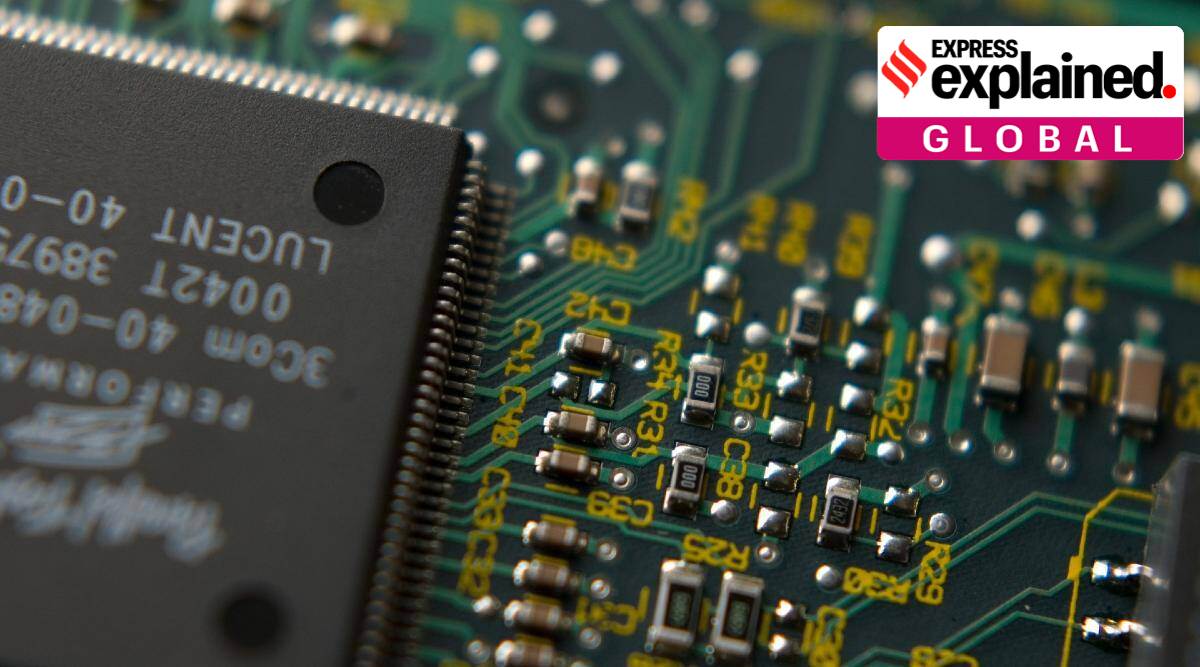The US House of Representatives passed the Creating Helpful Incentives to Produce Semiconductors (CHIPS) and Science Bill on Thursday (July 28), to provide assistance and subsidies worth $280 billion, particularly focused on its semiconductor industry, which is facing competition from China. The bill would provide “$52 billion in subsidies and additional tax credits” to companies that manufacture chips in the US, reported The New York Times. Another $200 billion is being allocated for scientific research, especially in artificial intelligence and other novel technologies.
In a rare show of unity, the bill was passed with the help of some Republican lawmakers despite their party’s general position on subsidies. Many republicans opposed the bill on this principle while some democrats, like Bernie Sanders, opposed the extension of what he called “welfare” to corporations in a time of inflation.

Why has this bill been passed now?
As per a report in The New York Times, it was a result of many factors coming together, a major one being the push for it by Chuck Schumer, the leader of the Democratic Party in the Senate or the upper house of the US parliament or Congress. He had been attempting to persuade a few Republicans about the need for this legislation since at least 2019, he said. There was also lobbying by some chip manufacturers.
Last year, a global shortage of semiconductors or chips led to the recognition that the US needed its own substantial manufacturing. And since 2020, the growing use of devices like laptops in homes has further increased demand. At the moment, about 75% of the world’s reliance on semiconductors is met by East Asia, reported Forbes. In particular, Taiwan and South Korea’s Samsung have been at the helm of manufacturing them, but China has been upping production as well.
There is also a nationalistic argument here, with the US pointing to dependence on China as a cause for worry. The bill’s summary said: “Only 12% of chips are currently manufactured domestically, compared to 37% in the 1990s, and many foreign competitors, including China, are investing heavily to dominate the industry.”
US President Joe Biden, who will soon sign the bill into law, said in a statement: “it will strengthen our national security by making us less dependent on foreign sources of semiconductors”, additionally referring to maintaining “US leadership in industries”. The statement further said the bill “will make cars cheaper, appliances cheaper, and computers cheaper. It will lower the costs of every day goods.”
Why are semiconductors or chips so important?
They are instrumental in running most electronic devices used in our daily lives. Made from materials like silicon that “semi-conduct” electricity, the chips are used in the form of data-storing memory chips, or logic chips that run programs and act as the “brains” of a device. The manufacturing of chips requires a lot of precision, as well as investment. Additionally, they need very particular conditions, where even small disturbances around or inside the manufacturing unit can interfere with production.
Story continues below this ad
At the time of the shortage last year, Samsung had warned of a “serious imbalance” in supply and demand globally, leading to a shortfall in the production of electronic goods. A Bloomberg report said that some broadband providers were facing delays of more than a year when ordering internet routers. Apple said that supply constraints were affecting sales of iPads and Macbooks, leading to billions of dollars lost in revenue.
What has China’s response been?
One provision in the bill prohibits any semiconductor company that receives financial assistance through the newly passed CHIPS bill, from supporting the manufacture of advanced chips in China, the AP reported. Before the bill was passed, Zhao Lijian, a Chinese foreign ministry spokesman said that the US “should not put in place obstacles for normal science, technology and people-to-people exchanges and cooperation”.
China’s state-run media organisations like the China Daily and Global Times criticised the provision that would punish US companies for dealing with China, and accused it of being the “latest representation of Washington’s bid to exclude China from the global supply chains.”








































